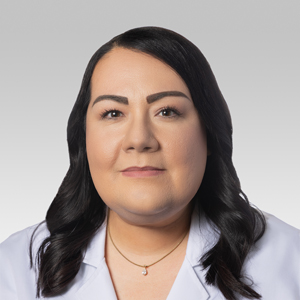Stomach Flu, Food Poisoning or Influenza: Which One Do You Have?
Sorting Out the Sickness
Published November 2024
You wake up in the middle of the night from a sudden wave of nausea, chills and a headache. Could your illness be from the leftovers you ate for dinner, or did you catch the stomach flu after a week of travel? Let’s unpack.
Stomach flu (viral gastroenteritis) and food poisoning are two different conditions with similar symptoms, making it difficult to know which one you may have. A third condition, influenza (flu) is sometimes confused with stomach flu, but influenza is an upper respiratory illness, mostly affecting the nose, throat and lungs. Understanding the key differences between all three common ailments can help you seek appropriate treatment and prevent further spread. Gabriela Delgado, MD, a Northwestern Medicine primary care physician, breaks it down.
Stomach Flu
Stomach flu happens when your stomach and intestines become inflamed. The inflammation is caused by your immune system’s response to a viral infection. “Some of the most common viruses associated with stomach flu are rotavirus and norovirus,” says Dr. Delgado. The viruses can be found in the vomit or diarrhea of infected people. People who are infected can spread the virus to things they touch, especially if they don’t wash their hands after using the bathroom or changing a diaper. Food handlers with the infection can spread it to others through food and drinks.
Symptoms:
- Nausea
- Vomiting
- Diarrhea
- Stomach pain and cramps
- Low-grade fever
Duration: Generally, stomach flu lasts about 48 hours, but severe cases can last more than two weeks.
Treatment: Most people do not need medical treatment for stomach flu. Focus on hydration and rest. To ease symptoms, your clinician may recommend anti-nausea or anti-diarrhea medications.
Prevention: Wash your hands frequently, especially before you eat or touch your face, and after you go to the bathroom. For infants, talk with your care team about the vaccine for rotavirus.
Food Poisoning
Food poisoning happens when you consume food contaminated with harmful bacteria, viruses or parasites. This is in contrast with stomach flu that comes from contact with contaminated bodily fluids like vomit and diarrhea.
Symptoms:
- Nausea
- Vomiting
- Diarrhea
- Stomach pain and cramps
- Low-grade fever
- Chills
- Headaches
- Belly bloating
Duration: In general, you should start feeling better within 48 hours, but it depends on the type of bacteria, virus or parasite causing the illness.
Treatment: Rest, fluids and over-the-counter medications can help manage symptoms. In severe cases hospitalization may be necessary.
Prevention: Proper food handling, cooking and storage are essential to prevent food poisoning. Avoid consuming raw or undercooked foods and wash hands thoroughly before preparing food.
If you or someone you know is sick from eating a certain food, contact your local health department to report the incident. This can prevent further outbreaks.
Flu
Flu (influenza) is a highly contagious viral infection that primarily affects the respiratory system. The influenza virus, which causes the flu, spreads through the air in droplets. “If you breathe in a droplet from someone with the flu — which can happen if they cough, sneeze, laugh or talk — you can get infected,” says Dr. Delgado.
Symptoms:
- Fever usually higher than 100 degrees F
- Chills
- Headaches
- Dry cough
- Sore throat
- Fatigue
- Muscle aches
Less common symptoms are nausea, vomiting and diarrhea.
Duration: Symptoms usually last for about seven days.
Treatment: Rest and drink lots of fluids. Over-the-counter cough or decongestant medication may help alleviate symptoms. In some cases, antiviral medication may be prescribed. For the antiviral medicine to help, you need to take it as soon as possible after your symptoms start. The best time to take it is within 48 hours.
Prevention: Vaccination is the most effective way to prevent the flu. Good hygiene practices, such as frequent hand washing can also help. Always cough or sneeze into a tissue. Throw the tissue away and wash your hands to avoid spreading any droplets.
Key Differences Between Stomach Flu, Food Poisoning and Influenza
While all three ailments share common symptoms, there are key differences to watch for:
- Onset:
- Symptoms of stomach flu often begin about one to two days after the virus gets into your body.
- Symptoms of food poisoning appear abruptly, typically within a few hours of consuming contaminated food.
- Flu symptoms usually develop gradually over a few days.
- Duration: Flu symptoms tend to last longer, while food poisoning and stomach flu symptoms often resolve more quickly.
- Symptom differentiators:
- Food poisoning may be accompanied by bloody diarrhea or severe abdominal pain.
- Compared to food poisoning, stomach flu tends to present with more nausea and vomiting, but less diarrhea.
- Flu primarily affects your nose, throat and lungs while stomach flu affects your stomach and intestines.
When to Seek Medical Attention
While most cases of influenza, stomach flu and food poisoning can be treated at home, it’s important to seek medical attention if:
- You have difficulty breathing
- Vomiting lasts more than 24 hours
- Diarrhea lasts more than three days
- You notice blood in your vomit or stool
- Signs of dehydration are present, including dizziness and decreased urine output
- You develop a fever higher than 101 degrees F
- Symptoms don’t improve after a few days or worsen
Understanding the differences between these three conditions can help you seek appropriate treatment and take steps to prevent infection.
Learn more about reducing your risk of foodborne illness.







